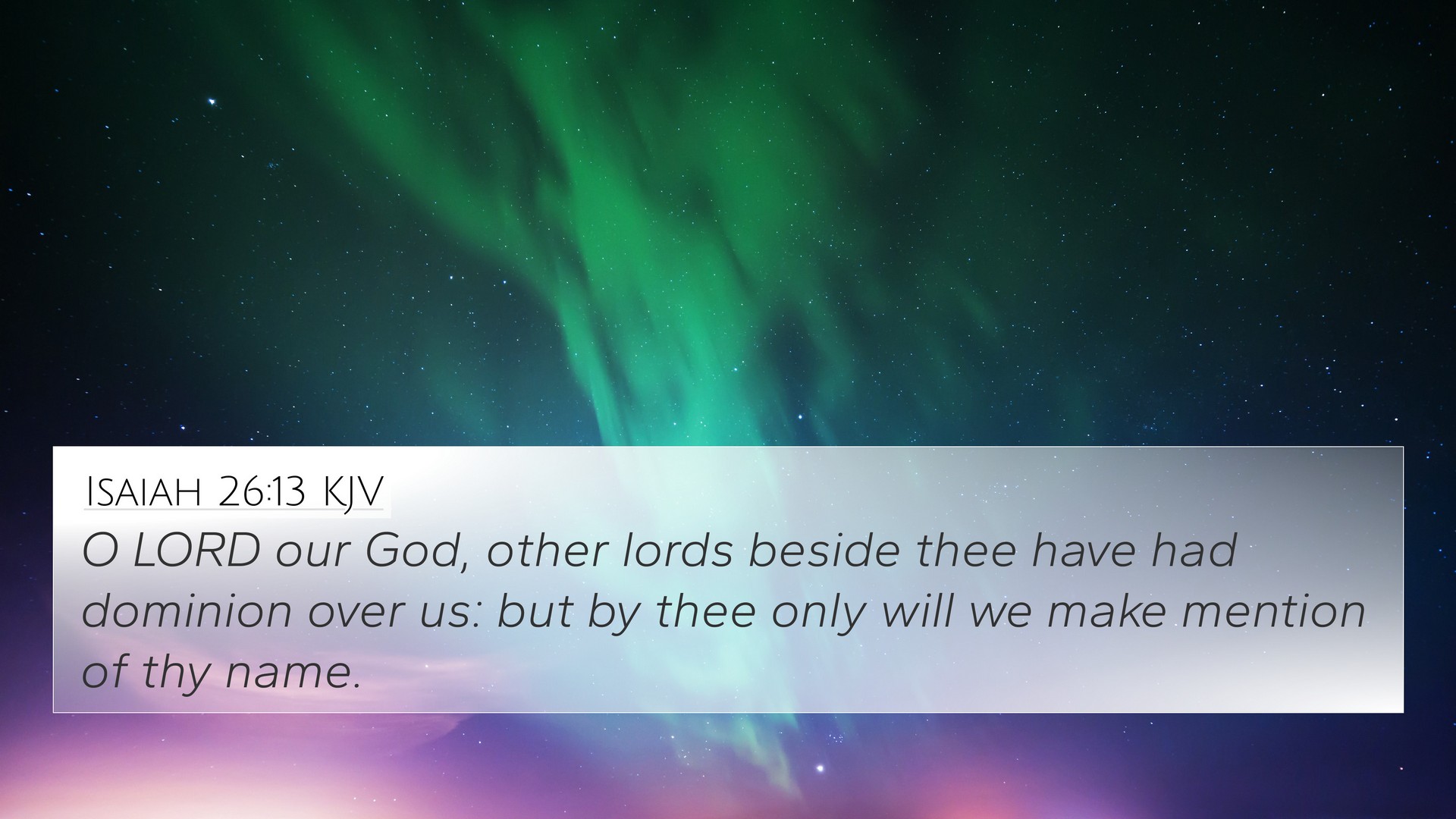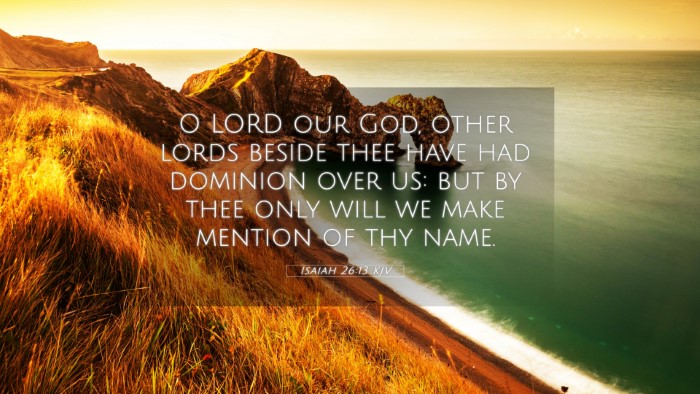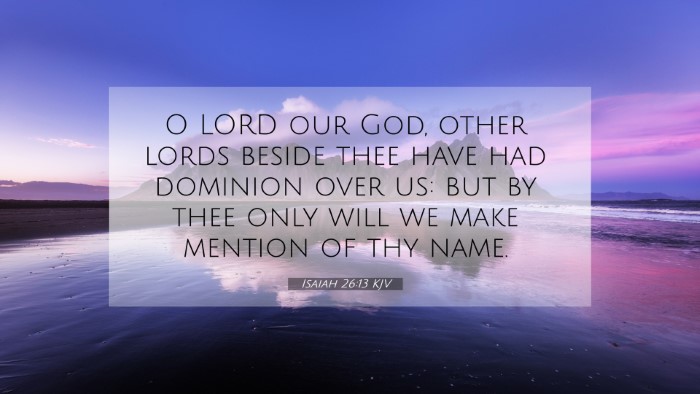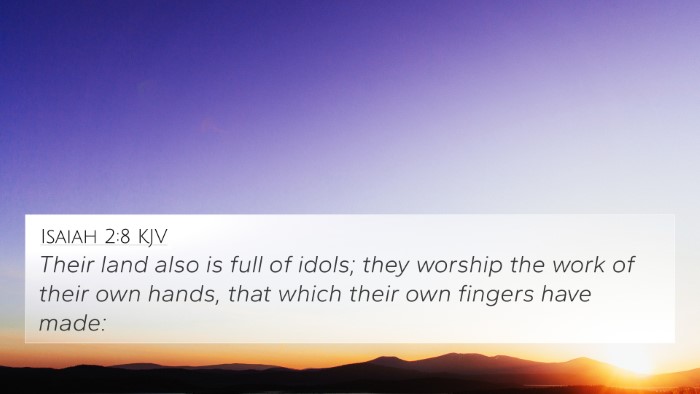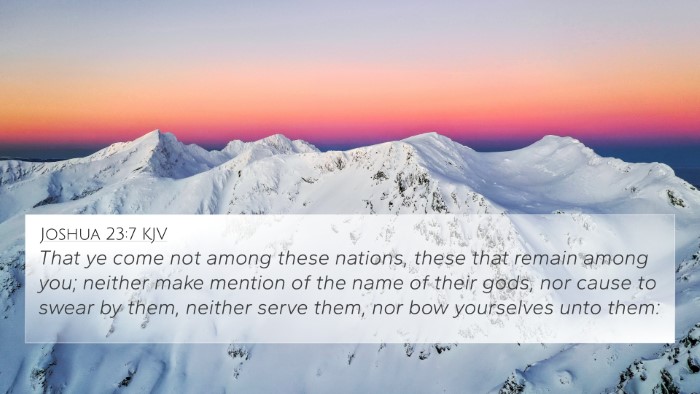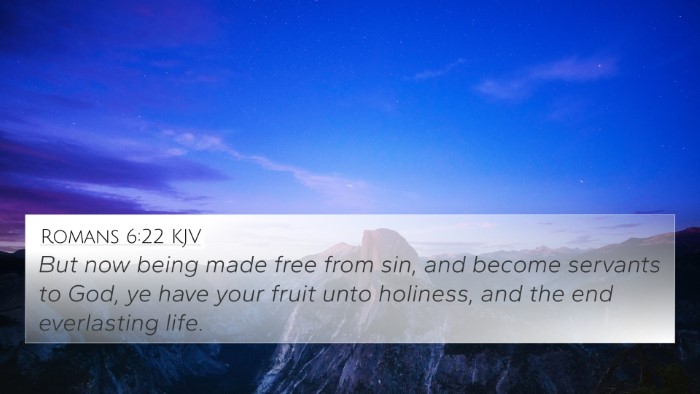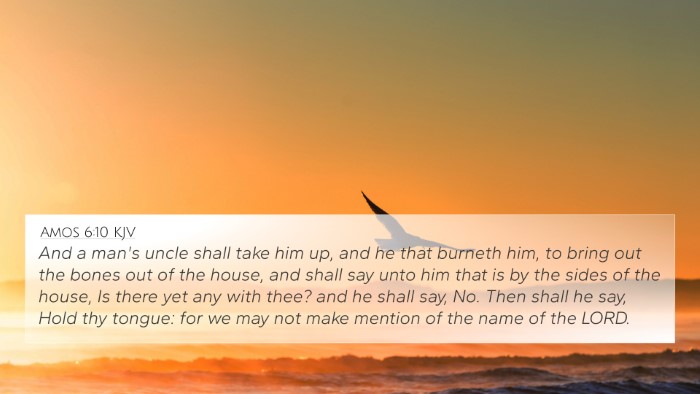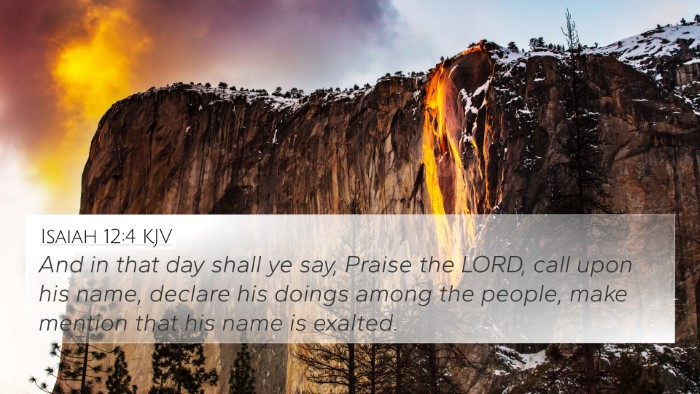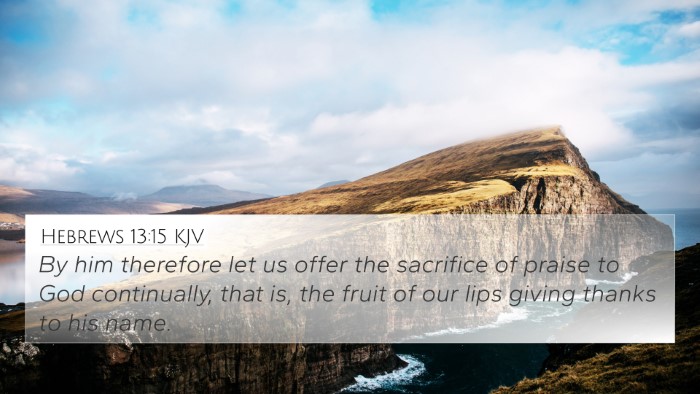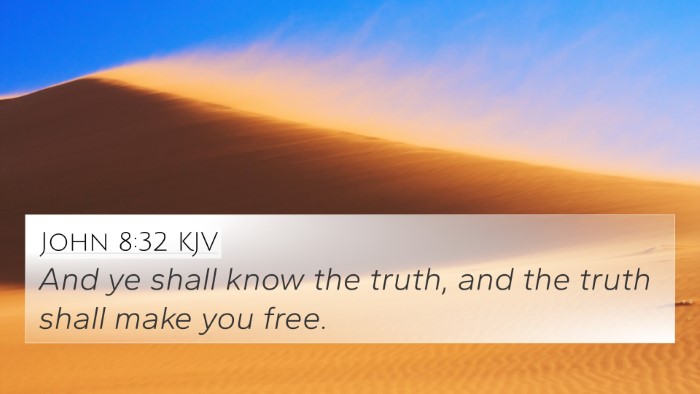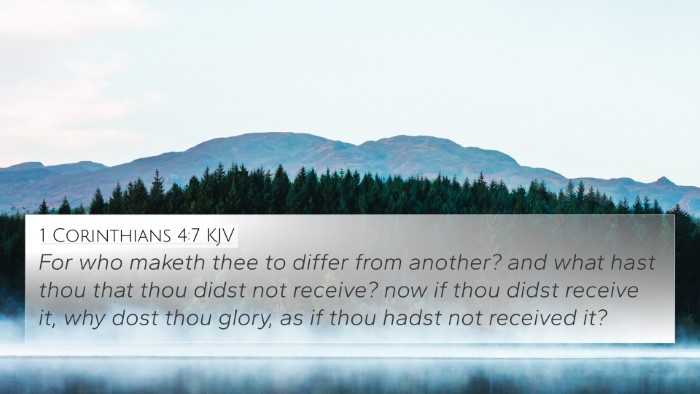Understanding Isaiah 26:13
Isaiah 26:13 states: "O Lord our God, other lords beside you have had dominion over us; but your name alone we bring to remembrance."
This verse represents a profound recognition of God's sovereignty, emphasizing the importance of calling upon His name amidst the presence of other powers. The phrase "other lords" indicates the acknowledgment of competing influences and authorities in life, yet it draws attention back to the singular greatness and authority of God.
Summary of Meanings from Public Domain Commentaries
1. Matthew Henry's Commentary
Matthew Henry interprets this verse as a heartfelt expression of the people's acknowledgment of God's ultimate authority over all other powers. He notes that while multiple authorities may have reigned over them historically, particularly during Israel's exile, the people recognize that only God deserves their veneration and memory.
2. Albert Barnes' Commentary
Albert Barnes expands on this theme by discussing the context of the verse within the framework of Israel’s history. He emphasizes the idea that, despite the oppression from foreign entities, the people are reminded of God’s redeeming power and sovereignty. Barnes reminds readers that invoking God’s name is an act of reliance and trust in Him alone.
3. Adam Clarke's Commentary
Adam Clarke offers a more pastoral approach, expressing how this verse conveys deep human emotions in the face of struggle. He suggests that the recognition of "other lords" signifies the distractions and temptations of worldly influences. Clarke encourages believers to remember that true dominion and salvation rest solely with God, who should be at the forefront of their hearts and minds.
Related Bible Cross References
- Psalm 16:2: "I say to the Lord, 'You are my Lord; apart from you I have no good thing.'" - A declaration of the Lord's sole authority over goodness.
- Jeremiah 2:13: "My people have committed two sins: They have forsaken me, the spring of living water, and have dug their own cisterns, broken cisterns that cannot hold water." - A reminder of the folly of looking to other sources of sustenance.
- Isaiah 43:10: "You are my witnesses, declares the Lord, and my servant whom I have chosen..." - Emphasizing the uniqueness of God as the chosen one for their testimony.
- 1 John 5:21: "Little children, keep yourselves from idols." - An exhortation to recognize and reject other forms of dominion.
- Psalm 97:5: "The mountains melt like wax before the Lord, before the Lord of all the earth." - Expressing God's supreme power and authority over earthly lords.
- Luke 4:8: "Jesus answered, 'It is written: Worship the Lord your God and serve him only.'" - Affirmation of serving God alone amidst competing authorities.
- Isaiah 45:5: "I am the Lord, and there is no other; apart from me there is no God." - A steadfast declaration of God’s unique position as the true God.
- Romans 10:13: "For everyone who calls on the name of the Lord will be saved." - Connecting the act of remembering and calling upon the Lord to salvation.
- Revelation 19:16: "On his robe and on his thigh he has this name written: King of kings and Lord of lords." - Identifying Jesus as the ultimate ruler above all others.
- Matthew 6:24: "No one can serve two masters..." - Reinforcing the need for undivided loyalty to God.
Thematic Connections
Isaiah 26:13 provides a powerful basis for understanding the dynamics of authority and allegiance in the Bible, illustrating a recurring theme related to God's supremacy over all earthly lords. This verse fits within an array of gospel narratives and epistolary teachings that converge on this topic.
Cross-Referencing Biblical Themes
The verse finds thematic connections across both the Old and New Testaments. For instance, the discussions of idolatry and spiritual fidelity in Jeremiah and the New Testament affirm the importance of acknowledging God's sovereignty.
Tools for Deeper Bible Study
For those wishing to delve deeper into the connections between Bible verses and increase understanding through cross-reference, many tools are available, such as a Bible concordance and a Bible cross-reference guide. These resources help in exploring cross-referencing Bible study and contribute to discovering Bible verses that relate to each other.
Applying Cross-Referencing Methods
Engaging in cross-referencing Bible study methods enables readers to identify links between the Prophets and Apostolic teachings, enriching their understanding of scripture as an integrated whole.
Conclusion
Isaiah 26:13 serves as a poignant reminder of God’s rightful place in our lives amidst competing influences. The insights provided by Matthew Henry, Albert Barnes, and Adam Clarke encourage believers to focus on remembrance of the Lord and reliance upon His dominion for guidance and salvation. By exploring cross-referential connections within scripture, individuals can foster a deeper relationship with God, embracing His authority above all.
